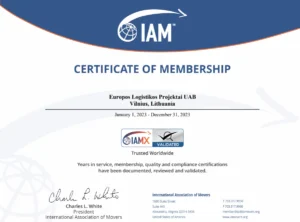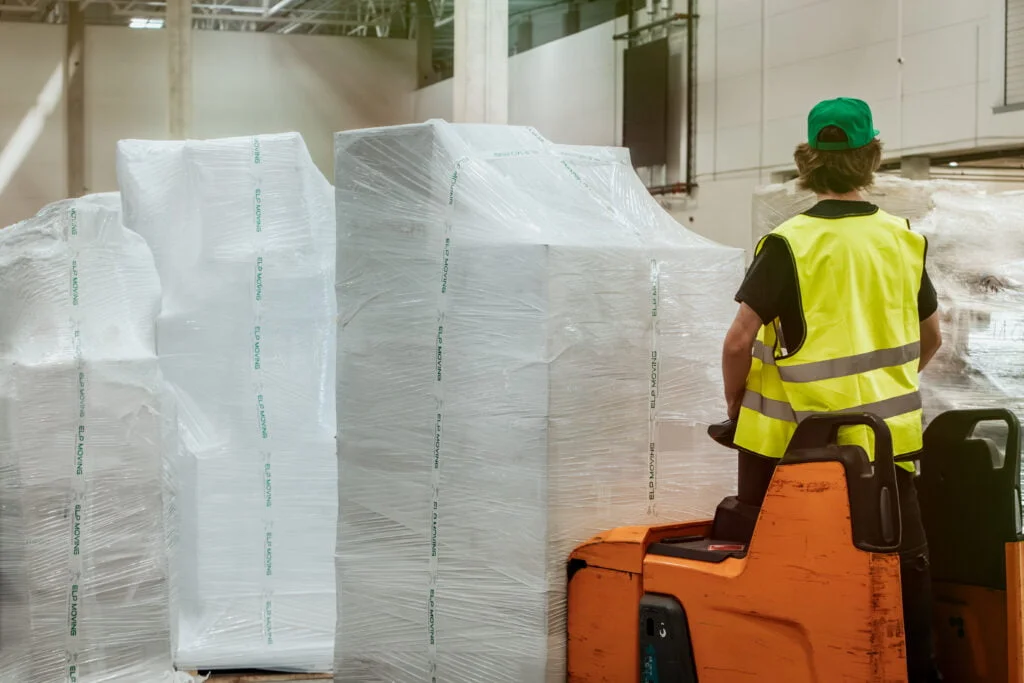
Planning to move abroad?
We will arrange a comfortable and safe move for you to a new place with transportation of all your personal belongings
Cultural Sensitivity Training Before International Relocation
Understanding the Importance of Cultural Sensitivity Training Before International Relocation
Relocating to a new country involves more than just a physical move. It’s a whole new journey that plunges you into new social, cultural, and professional landscapes that can often prove challenging, if not overwhelming. That’s why cultural sensitivity training before international relocation is not just a nice-to-have, but a necessity. But, what is cultural sensitivity, and why is it so crucial to successful international relocations?
Cultural sensitivity–also termed as cultural competence–refers to the awareness, understanding, and respect for other cultures. It is the ability to learn from and relate respectfully with people from your own and other cultures. And when it’s about preparing for a new life in a new country, cultural sensitivity takes on even more significance.
- Effective Communication: Every culture has its own unique language nuances, conversation styles, and non-verbal communication cues. Cultural sensitivity training can help you grasp these subtleties, enabling you to communicate more effectively with locals and avoid any misunderstandings.
- Building Strong Relationships: Understanding and respecting the cultural perspectives and customs of your new home can help you build strong relationships with locals. It can make you more relatable and trustworthy, both personally and professionally.
- Professional Success: Every workplace has its own specific culture, shaped by the broader cultural context in which it operates. Cultural sensitivity training can help you adapt to this new professional culture quickly, boosting your performance and prospects for success.
- Smoother Transition: Moving abroad can be a stressful experience, with the upheaval, uncertainty, and culture shock. Cultural sensitivity training can help to smoothen this transition, allowing you to adapt faster and navigate your new surroundings with more confidence.
Despite these compelling benefits, cultural sensitivity training tends to be overlooked in the mechanics of international relocations. It’s often seen as an optional extra, not a critical component of the relocation process. But this view needs to change. Cultural sensitivity training should be an integral part of any international relocation plan, conducted well before the move.
Moreover, cultural sensitivity training should not be a one-size-fits-all approach. Each training program should be tailored to the specific destination country, covering all relevant aspects – from language and etiquette to social norms and business practices.
In conclusion, before you embark on your big international move, remember that cultural sensitivity training is just as important as packing your belongings. It can pave the way for a more successful, enriching, and enjoyable experience in your new home!
Core Elements of Effective Cultural Sensitivity Training for International Relocations
Transferring to a new country can be both an exciting and daunting experience. A new setting, new environment, and in many cases, a very different culture. As such, cultural sensitivity training has become an indispensable part of preparing for international moves. But what exactly are the core elements of this training? Let’s explore.
1. Building Cultural Awareness
One of the first steps towards cultural sensitivity is building awareness. This involves gaining a deep understanding of the host culture, its social norms, traditions, values, and etiquettes. It’s not about knowing everything, but about being open to learning and appreciating differences. In this stage, training can cover aspects like history, language, religion, and societal structure of the new location.
2. Developing Cross-Cultural Communication Skills
Language barriers can often lead to misunderstandings and conflicts. Effective cross-cultural communication skills are thus, critical for smooth integration. Not only does it cover language proficiency but also non-verbal cues, listening skills, and cultural nuances in communication. Remember, communication is not just about speaking; it’s equally about understanding and interpreting what’s being said.
3. Embracing Cultural Differences
While it’s natural to gravitate towards what’s familiar, it’s essential to step out of the comfort zone and embrace the new culture. This requires an open mind, adaptability, and a positive attitude. Training should thus, focus on helping individuals view cultural differences as opportunities to learn and grow, rather than obstacles.
4. Understanding Legal and Ethical Considerations
In addition to social and cultural norms, it’s important to understand the legal and ethical framework of the new location. This can include laws related to employment, housing, driving, and personal conduct. Ignorance can result in inadvertent violations with serious implications. Hence, training should include this aspect to ensure full compliance and respect for the host country’s laws.
5. Engaging in Cultural Immersion
One of the most effective ways to embrace a new culture is through active engagement and immersion. This can be facilitated through various interactive sessions, real-life scenarios, role-plays, or even virtual reality experiences. It allows individuals to experience the culture first-hand, understand it better, and adapt more quickly.
By encompassing these core elements in training, it allows international transferees to navigate their new environment effectively, communicate respectfully with locals, and successfully integrate into the new culture. Remember, cultural sensitivity isn’t a destination, but a journey of understanding, respect, and adaptation.
The Benefits of Cultural Sensitivity Training for Expatriates and International Assignees
Moving to a new country is more than just a physical relocation, it’s a journey into a new culture, tradition, and mindset. Expatriates and international assignees often grapple with the challenge of adapting to their new environment, which can impact not only their personal life but work efficiency as well. This is where the importance of cultural sensitivity training comes into play.
Enhances Adaptability
One of the primary benefits of cultural sensitivity training is that it enhances the adaptability of expatriates. By understanding the cultural nuances, traditions, and workplace norms of the new country, expatriates can easily adjust to their new environment. They can efficiently navigate and understand the dynamics of their new surroundings, helping them to integrate more quickly into their new setting.
Increases Efficiency and Productivity
Cultural sensitivity training also contributes to increased efficiency and productivity in the workplace. It provides expatriates with the necessary tools to understand and communicate effectively with their new colleagues. When employees feel understood and respected, they’re likely to perform at their best. As a result, cultural sensitivity training can directly impact the productivity levels in a diverse workforce.
Promote Better Communication and Collaboration
Better communication and collaboration among team members are other key benefits of cultural sensitivity training. Misunderstandings and conflicts often arise in multicultural teams due to cultural differences. With cultural sensitivity training, expatriates are equipped with the knowledge and skills to navigate these differences effectively, promoting harmony and cooperation in the workplace.
Fosters Respect and Inclusion
Having cultural sensitivity training also fosters respect and inclusion in the workplace. It allows expatriates to respect and appreciate the differences they encounter in their new environment. This understanding can foster an inclusive atmosphere, enhancing employee morale and creating a more cohesive, efficient working environment.
Prevents Culture Shock
Finally, cultural sensitivity training can help prevent or mitigate the impact of culture shock. By preparing expatriates for the cultural differences they may encounter, they’re less likely to be overwhelmed by their new environment. This can make the transition smoother and more enjoyable for those moving abroad.
Overall, cultural sensitivity training is an essential component of successful international relocations. By investing in this training, businesses can help their expatriates adapt more effectively to their new environment, ultimately leading to more productive, harmonious and successful international operations.
Impact of Cultural Sensitivity Training on Cross-Cultural Communication and Integration
Moving to a different country can be a thrilling adventure, but it can also present unique challenges, especially in terms of cross-cultural communication and integration. This is where the power of cultural sensitivity training comes in, acting as a vital tool that can help expatriates build meaningful relationships and a sense of belonging in their new home country.
The Influence on Cross-Cultural Communication
Cultural sensitivity training significantly enhances cross-cultural communication – a key component for a successful international relocation. Communication is not just about language on its face value; it’s also about understanding the nuances, non-verbal cues, and social customs that underpin a society.
Through this type of training, you will gain insight into the host country’s communication style, whether it’s high-context (where communication relies heavily on contextual elements like body language and tone) or low-context (where messages are explicit and direct). This understanding facilitates better communication with locals, prevents misunderstandings, and helps you adapt efficiently in your new environment.
Enhancing Integration in the New Culture
Beyond communication, cultural sensitivity training also plays a significant role in ensuring smoother integration into the local culture. Knowledge about aspects like societal norms, traditions, etiquette, and behaviors can be eye-opening. This awareness fosters empathy and respect for the local culture, which is key in establishing rapport and building strong relationships with locals.
Professional Advantages
If you’re relocating for work, cultural sensitivity training can provide a competitive edge in your professional life. Understanding the work culture, business etiquette, management styles, and expectations in your new workspace can lead to more productive engagements and collaborations. It promotes respect for diversity and makes the workplace more inclusive.
The Ripple Effects
The impact of cultural sensitivity training goes beyond the immediate benefits for the trainee. Your increased understanding and respect for the host culture may influence those around you, causing a positive ripple effect. This can lead to multicultural exchanges, mutual respect, and a more harmonious community.
Remember, cultural sensitivity is not an inherent trait – it’s a skill that can be learned and honed. With the right training, you can navigate your new environment with confidence and ease, enriching your international relocation experience.
As the proverb goes, “When in Rome, do as the Romans do”. Or, in other words, when relocating internationally, seek to understand and appreciate your new surroundings. It will allow you to communicate effectively, integrate seamlessly, and ensure a richer, more fulfilling experience abroad.

ELP MOVING LTD – International Removals Specialists
Over the last decade we have had:


Working with us will ensure:
- Timely delivery of your belongings, so you can be sure that they’ll arrive when you need them.
- Expert handling of customs procedures, ensuring that your move is free from unexpected problems or delays.
- No wasted time, as we work efficiently to make sure that your move is completed as quickly as possible.
- No unnecessary financial losses, thanks to our competitive pricing and careful management of your move.

Certificates and awards







What our customers are saying:
I will definitely recommend your company to my friends.
The best transport company. Real professionals. Quickly and efficiently.
Now all transportation is only with you.
What pleased me most was the packaging of the things: nothing was broken and everything was folded very carefully) well done!
Thank you very much – everything was delivered very carefully indeed!

Frequently asked questions

Find out how much your move will cost
Submit details about your move for a free consultation and no obligations quote. We will calculate a completely personalised quote based on information you provide.







